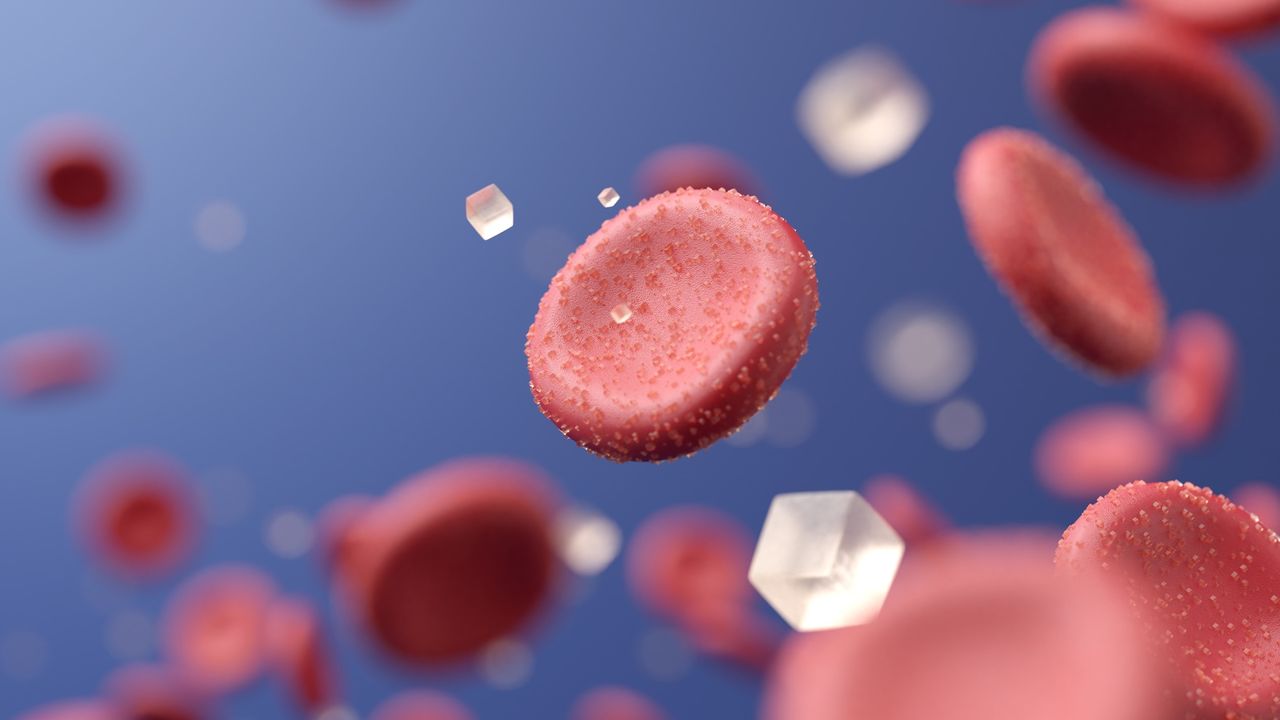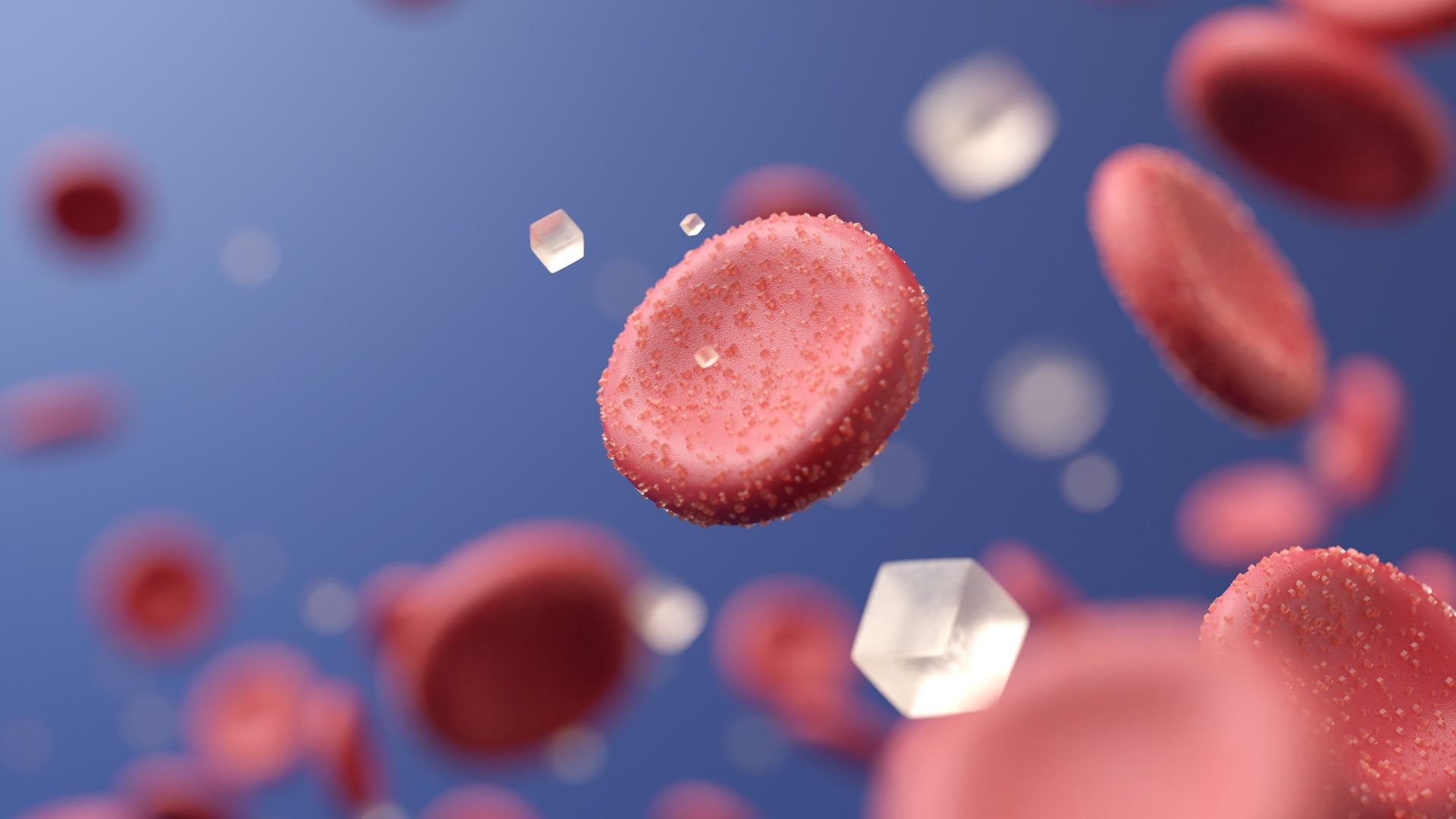
An experimental drug compound could prevent and treat some complications of diabetes, such as poor wound healing and rampant inflammation. And it works regardless of blood sugar control, a new study in mice and human cells suggests.
The cornerstone of diabetes care is keeping blood sugar in check through diet and exercise, by maintaining a healthy weight, and by injecting the hormone insulin to help shuttle glucose out of the bloodstream. But while maintaining blood sugar levels in a target range reduces the chance that diabetes complications will emerge, it doesn’t eliminate the risk.
“The complications of diabetes — which really are the issues that make people sick, that reduce their lifespan, and that just make them unwell — are only partly mitigated by tight control of the blood sugar,” said study co-author Dr. Ann Marie Schmidt, a professor of medicine at the NYU Grossman School of Medicine and director of the Diabetes Research Program at NYU Langone Health.
That raises questions about what the other drivers of diabetic complications might be and whether they can be treated.
For decades, Schmidt and colleagues have sought to answer those questions, and their efforts have led to the development of the new experimental drug. In their latest work, published in October in the journal Cell Chemical Biology, the team tested the drug’s effects in lab mice and human cells.
The results show that such a drug has “great potential” for limiting or preventing several complications of diabetes, Timothy Perkins, an assistant professor of pathology at the University of Pittsburgh, wrote in a commentary on the study.
Blocking complications at the source
The new drug compound takes aim at a protein called RAGE, which interacts with a second protein called DIAPH1. Schmidt and colleagues first described RAGE in the 1990s, finding that it plays a role in the vascular complications of diabetes, such as heart disease.
The RAGE protein is found in many types of cells, including immune cells and the cells that line blood vessels. It spans the cell membrane, with one end interacting with substances on the outside of the cell and the other relaying signals inside the cell. The external bit of the protein interacts with advanced glycation end products (AGEs) — proteins with sugars stuck to them.
“Once they’re stuck on there, they have a gain of function where they can actually perturb and damage endothelial cells, the cells that line every blood vessel in our body,” Schmidt told Live Science. It’s known that AGEs accumulate in the body with normal aging, and in the context of certain chronic diseases, including diabetes, they build up more quickly than usual.
RAGE, which stands for “receptor for AGEs,” is activated by this buildup of sugar-coated proteins, and this kicks off harmful changes inside the cell, including processes that ramp up inflammation. It turns out that those changes rely on RAGE’s interaction with a second protein inside the cell: DIAPH1. (The team had previously tried blocking AGEs from plugging into RAGE, but didn’t find success with that approach.)
With guidance from co-author Alexander Shekhtman, a structural biologist at the State University of New York at Albany, the researchers took a closer look at the interaction of RAGE and DIAPH1. They built a detailed model of how the two proteins interact in the presence of AGEs, and also investigated the downstream cellular consequences of that exchange.
They showed that, at baseline, DIAPH1 starts with a cellular brake engaged that holds back its activity, but after it interacts with RAGE, those brakes are ripped off. The full consequences of that aren’t yet understood, Schmidt noted, but from what we know, it “appears to have pathological outcomes.”
Schmidt, Shekhtman and their team had previously looked for molecules that could block the interaction of RAGE and DIAPH1. Among 58,000 molecules, the team zeroed in on one that looked promising and found in initial mouse experiments that it curbed diabetes complications such as kidney disease and heart ischemia. An analogue of that original molecule was used for the new study, as tests suggested it has a better safety profile.
In cells from patients with type 1 diabetes, the drug compound blocked the interaction between RAGE and DIAPH1 and subsequently reduced inflammatory signals. In lab mice with diabetes, applying the compound topically to mice’s wounds helped to both tamp down inflammation and speed up healing. The researchers also showed that the drug could reduce inflammation in mice with allergies when given by mouth, but they didn’t test this oral delivery in diabetic mice.
Looking forward, it will be important to study RAGE in many cell types, because it likely does different things in different types of cells, Perkins noted in his commentary.
Much more work is needed before the drug can be tested in humans, including more tests in lab animals, Schmidt emphasized. But she suggested that, if the drug makes it to approval, it would be best for patients to start using it soon after being diagnosed with diabetes. Ideally, RAGE therapy should be paired with tight blood sugar control, before the snowball effect of AGEs building up could get started, she said. You’d want to “mitigate that spiral of constantly making more AGEs,” she said.
Beyond diabetes, RAGE is also known to contribute to inflammatory diseases of the lungs, such as asthma and chronic obstructive pulmonary disease (COPD), Perkins noted. He suggested that those might be additional contexts where drugs that disrupt the RAGE-DIAPH1 interaction might be helpful.
This article is for informational purposes only and is not meant to offer medical advice.

